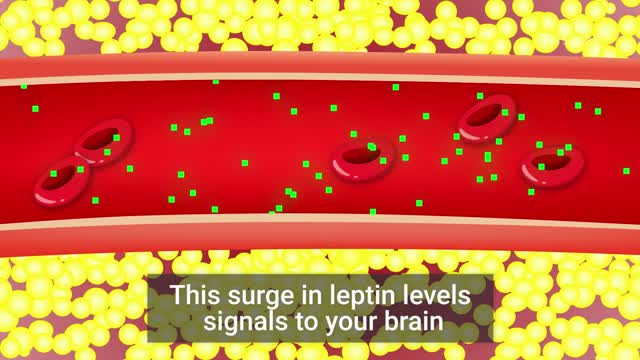Premium Only Content

What Losing Weight Does To Your Body And Brain | The Human Body
Special thanks to John Gunstad, professor with the Department of Psychological Sciences at Kent State University, for speaking with us about his cutting-edge research on how losing weight affects brain function.
Following is the transcript of the video:
Here’s what losing weight does to your body and brain.
During the first week, you may find it easy to lose weight by simply switching to a healthier diet. But as your metabolism adjusts, you won’t burn as many calories as you used to.
So losing additional weight will become harder.
Making matters worse, as the fat melts away, you’ll start to experience an increase in appetite. After a meal, fat cells release a hormone called leptin into the bloodstream.
This surge in leptin levels signals to your brain you’re full and should stop eating. But with less overall fat, people who lose weight show a measurable dip in leptin.
Brain scans of obese patients who had lost 10% of their body weight revealed that less leptin leads to increased activity in regions of the brain that control our desire to eat.
The result isn’t just an increased appetite but an even stronger urge to eat fatty, high-calorie foods, because your brain is trying to restore the body’s leptin levels to normal.
However, fighting that early impulse to gorge on pizza and donuts is worth it in the long run.
Besides the decreased risk of heart disease, hypertension, high cholesterol and type 2 diabetes, scientists studying overweight people discovered that losing just one pound of body weight reduces four pounds of pressure on knee joints.
Losing excess weight also reduces strain on the blood vessels, increases blood flow to the brain, and boosts overall brain function.
Several studies have shown that people who underwent weight-loss surgery saw an improvement in memory, concentration, and problem-solving skills in as soon as three months.
Plus, brain scans indicate that people who lost weight and kept it off for nine months reacted differently when shown images of high-calorie foods than before they lost the weight.
The brain regions that process reward, motivation, and taste didn’t react as strongly, whereas the areas that promote overall self-control had a boost in activity.
So fighting those cravings early on might make them easier to control later. Turns out — like anything else — losing weight can get easier with practice.
------------------------------------------------------► ►► https://bit.ly/2UT8QFY
-
 2:23
2:23
banooda12
4 years agoWhat Losing Weight Does To Your Body And Brain....2025
34 -
 5:02
5:02
WKBW
4 years agoThe Diet Center - Losing weight together
19 -
 24:58
24:58
Law&Crime
9 hours ago $2.57 earnedSecond Note Leaves Disturbing Clues in New York City Killings
33.5K9 -
 1:36:57
1:36:57
Badlands Media
1 day agoAltered State S3 Ep. 39: Earthquakes, Energy Games & the Fall of the Narrative
71K14 -
 2:04:07
2:04:07
Due Dissidence
14 hours agoCharlie Kirk's GAZA LIES, Caitlin Clark Stalker, Palantir Goes Hollywood - w/ Kyle Matovcik | TMWS
38.3K8 -
 2:54:43
2:54:43
I_Came_With_Fire_Podcast
15 hours agoAmerica First, Trump Threatens China, Your Friendly Neighborhood Illegal, EPA Gets a "W"
37.6K8 -
 4:40:21
4:40:21
Geeks + Gamers
6 hours agoGeeks+Gamers Play- MARIO KART WORLD
27.5K2 -
 8:28:19
8:28:19
Dr Disrespect
15 hours ago🔴LIVE - DR DISRESPECT - BATTLEFIELD 1 - FULL GAME
170K7 -
 1:39:26
1:39:26
Glenn Greenwald
10 hours agoStephen Miller's False Denials About Trump's Campus "Hate Speech" Codes; Sohrab Ahmari on the MAGA Splits Over Antitrust, Foreign Wars, and More | SYSTEM UPDATE #495
114K77 -
 1:57:28
1:57:28
Omar Elattar
11 hours agoThe $300M CEO: "The One Skill That Made Me Rich In 15 Different Countries!"
21.1K